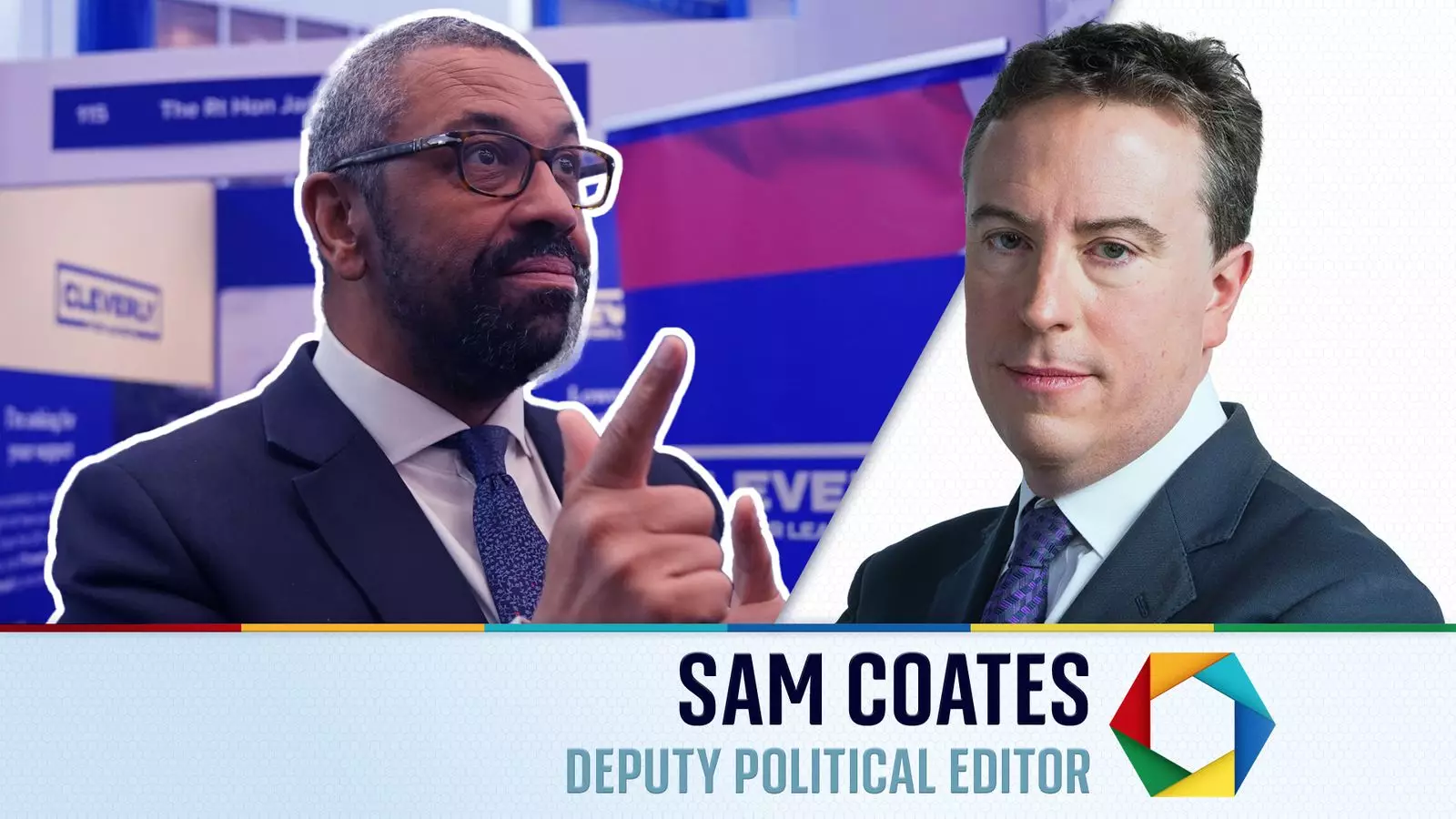The race for leadership within the Conservative Party has escalated, as candidates vie for their share of party support amidst an atmosphere charged with anticipation and rivalries. Recent developments have unveiled a clear frontrunner in James Cleverly, whose compelling conference speech has catapulted him to a position of strength. Nonetheless, political contests are famous for their unpredictability, and while Cleverly may be riding a wave of momentum, the path to victory remains fraught with challenges.
Cleverly’s recent oratory is critical in understanding the current state of the leadership race. His address was not only polished but was crafted to resonate with party supporters, fostering a sense of unity and purpose. This strategic articulation has not only garnered him immediate support but has also created an illusion of invincibility. However, such popularity is often fleeting in politics—especially when it is built on a single event like a conference.
The expectations set by such high-profile speeches can lead to critical assessments by both supporters and critics. Cleverly’s ascent, celebrated by some, also places that much more pressure on him to sustain this momentum and live up to campaign promises. The challenge lies in shifting from a charismatic speaker to a credible leader who can navigate the complexities of party politics and electoral planning effectively.
Equally significant are the strategic moves of other candidates like Kemi Badenoch and Robert Jenrick, whose approaches reflect divergent philosophies within the party. Badenoch’s concentrated appeal to the more traditional and right-leaning factions of the Conservative Party denotes a conscious attempt to consolidate support from hardline members. She has called for a unified front among the party’s right-wing, pledging to embody the ideals that resonate well with this audience. This approach is not without risk, as courting extremes can alienate centrist voters who are crucial in the broader electoral landscape.
On the other hand, Robert Jenrick finds himself at a crossroads, showing signs of stagnation despite previous confidence in his campaign. After experiencing a dip in the number of supportive MPs, speculation arises about the association of his recent public performances with declining support. The erosion of his standing suggests that moments during the conference—intended to bolster his credibility—may have backfired.
This juxtaposition of strategies makes one question the overall direction of the party. Can Badenoch solidify the right with her assertive campaign, or will Jenrick manage to regain favor from disillusioned moderates? The leadership contest is not merely a showdown of individual talents; it’s a reflection of the ideological future of the Conservative Party itself.
Polling data is a crucial barometer for understanding the ambitions of these candidates. Recent surveys signal a profound interest in candidate virtues like integrity, honesty, and the preservation of conservative principles among party members. The fact that only 2% prioritize mere electoral success illustrates a nuanced yet decisive sentiment that aligns behavior with values rather than strategies alone. This awareness suggests that candidates must cultivate a deeper connection with the principles valued by party members rather than merely focusing on their ability to ‘win.’
The leadership race remains intricate, as Cleverly’s significant lead may induce strategic alliances or betrayals in the coming rounds. Questions linger about whether he might ‘lend’ votes to Jenrick in order to facilitate an easier final round. Such political maneuvering possesses the potential to redefine alliances and could ultimately affect the outcome beyond the immediate gains.
Though momentum currently favors Cleverly, the outcome remains unpredictable and could shift rapidly as candidates refine their messages and strategies. The Conservative leadership race serves as a microcosm of the challenges that the party faces—balancing the desires of diverse factions while maintaining coherence and relevance in the broader political landscape. As the deadlines draw near, the party will need to navigate these treacherous waters with astute finesse. Ultimately, the coming weeks will reveal whether Cleverly’s charm can be transmuted into enduring support or if rival factions will manage to rebound and reshape the trajectory of the leadership race.


Leave a Reply